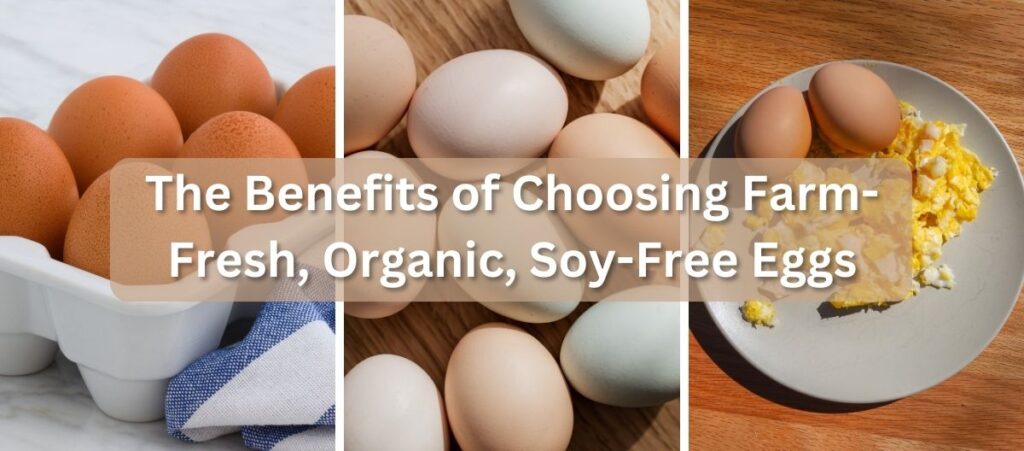Farm-fresh, organically-fed, soy-free eggs have become increasingly popular in recent years as consumers become more concerned about the quality, safety, and environmental impact of conventionally produced eggs.

This article outlines the advantages of farm-fresh, organically-fed, soy-free eggs over conventionally produced eggs. It highlights that organically-fed chickens are not exposed to harmful toxins, which results in higher nutritional value, improved taste, and ethical farming practices. Additionally, supporting small, local farms promotes sustainable and environmentally friendly agricultural practices. The article concludes that although these eggs may be more expensive, the benefits outweigh the costs.
- No Soy Contamination
Conventionally produced eggs usually contain soy, which can be problematic for people with soy allergies or sensitivities. By choosing farm-fresh, organically-fed, soy-free eggs, you can eliminate the risk of consuming even small amounts of soy, making them a safer choice for individuals with soy sensitivities.
- Higher Nutritional Value
Farm-fresh, organically-fed, soy-free eggs are often considered to be more nutritious than conventionally produced eggs. Studies have shown that eggs from chickens that are allowed to roam and forage for food contain higher levels of vitamin E, beta-carotene, and omega-3 fatty acids than eggs from chickens that are confined to cages and fed a diet of corn and soy. Additionally, organically-fed chickens are not exposed to the chemicals, pesticides, and other toxins that can be present in conventionally produced chicken feed.
- Environmentally Friendly
Organic farming practices are designed to be more sustainable and environmentally friendly than conventional farming practices. By choosing farm-fresh, organically-fed, soy-free eggs, consumers can support farmers who prioritize sustainable and environmentally friendly agricultural practices. Organic farming practices often include the use of natural fertilizers, crop rotation, and the use of beneficial insects to control pests and diseases, which can help to reduce the environmental impact of farming.
- Ethical Farming Practices
Farm-fresh, organically-fed, soy-free eggs are often produced on small, family-owned farms that prioritize ethical animal husbandry practices. These practices may include providing chickens with access to pasture, avoiding the use of genetically modified feed, and using natural methods to control pests and diseases. By choosing farm-fresh, organically-fed, soy-free eggs, consumers can support these ethical farming practices and help to promote more humane treatment of animals.
- Improved Taste
Many people who have tried farm-fresh, organically-fed, soy-free eggs report that they have a richer, creamier flavor than conventionally produced eggs. This may be due to the fact that the chickens that produce these eggs are allowed to roam and forage for food, which can result in a more diverse and nutrient-rich diet.
- No Antibiotics or Hormones
Farm-fresh, organically-fed, soy-free eggs are often produced without the use of antibiotics or hormones. This can help to reduce the risk of antibiotic resistance and promote more sustainable farming practices.
- Supporting Local Agriculture
By purchasing farm-fresh, organically-fed, soy-free eggs, consumers can support small, local farms and help to promote a more sustainable and diversified agricultural system. This can help to reduce our dependence on large-scale, industrialized agriculture and promote more sustainable food systems.
Farm-fresh, organically-fed, soy-free eggs offer numerous advantages over conventionally produced eggs, including higher nutritional value, improved taste, and support for sustainable and ethical farming practices. While they may be more expensive than conventionally produced eggs, many consumers believe that the benefits are worth the extra cost. By choosing farm-fresh, organically-fed, soy-free eggs, consumers can support more sustainable and environmentally friendly agricultural practices, and help to promote more humane treatment of animals.
Send us a free 90 sec comment about this post.